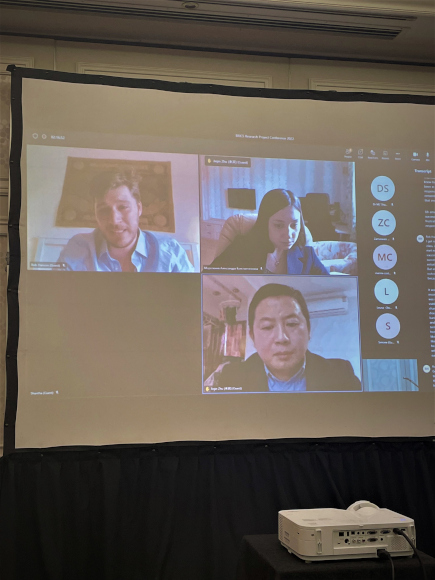The Faculty of Management Sciences recently hosted a BRICS (Brazil, Russia, India, China, South Africa) Research conference 2022. The conference which was held from Sunday, 3 April to Wednesday, 6 April 2022 was funded by the National Institute for the Humanities and Social Sciences (NIHSS).
The conference called for papers on four main themes: entrepreneurship, agriculture, climate change, and the New Development Bank. The chosen themes were not only relevant for the BRICS Universities, such as the Durban University of Technology (DUT) but also for the entire bloc’s community.
The conference shared helpful information from the research and analysis papers from professors and postgraduate students from all BRICS countries. The selected research papers pose challenges and solutions brought about by the COVID-19 pandemic in BRICS nations. Thus, thirty-two papers from all BRICS nations were presented on the four research themes.
The research project was led by Professor Fulufhelo Netswera, Executive Dean: Faculty of Management Sciences and DUT’s Dr Ndivhuho Tshikovhi, who opened the conference by presenting a paper on an overview of the entrepreneurship activities within BRICS nations. The project team is composed of six researchers from all BRICS nations who attended in-person and also online.
On the first day, Prof Fulufhelo Netswera highlighted the trajectory of empire-building and its collapse over thousands of years. More so, the Era of Americanism and Bretton Wood facing an unprecedented challenge that questions relevancy and legitimacy. He also spoke about the countries of the Global South becoming highly despondent and looking to alternative systems for their development promotion economic, political and social justice. Furthermore, how the BRICS formation, although young, represents the aspirations of nearly half of the global population (3,4 billion) and accounts for over 43% of the world GDP. Lastly, the New Development Bank being a game-changer enabling the transition from political slogans and promises into a practical program to rival unfavourable conditions imposed on developing countries by the Bretton Woods institutions.
On the second day, Prof Sibusiso Moyo: Deputy Vice Chancellor: Research, Innovation & Engagement spoke about “Advancing South to South Partnerships and their Contribution to Economic Development” with a focus on universities as contributors to economic development.
Prof Moyo emphasised the importance of strategically crafting a research, innovation and engagement agenda that takes into account the local, regional, national and global context into account and how that becomes an important agenda and tool to contribute to economic development. Empowering community members with skills needed to better themselves, discover new information and leverage from the South-South partnerships as we deal with the impact of the pandemic and global changes is critical to ensure there is more social cohesion.
She (Prof Moyo) outlined different projects and initiatives that the university has embarked on and how they have strategically implemented and led the entrepreneurship agenda to help the students realise their full creative and innovative potential – identifying and finding solutions to some of the challenges their respective communities face.
The university’s plans and opportunities were also mentioned, aiming at allowing students and scholars to showcase the talent and skills that they have developed throughout the BRICS university networks. One of the high points of her presentation was the statistics on DUT and cooperation between South African universities and universities in other regions of the world, providing us with a clear understanding that collaboration on research between South-South countries is much lower than with the Global North.
Thus, urging the BRICS community to find ways to enhance cooperation, creating opportunities for sharing knowledge and working relevant research that addresses key themes identified through the network, co-publishing, joint supervision of postgraduate students, academic and student exchanges.
On day three, Prof Sarah Mosoetsa presented the vision of the NIHSS in promoting BRICS nations’ cooperation’s through research and mobility between countries. The program for day three and the last day of the conference was focused on providing postgraduate students with knowledge and awareness of the research opportunities within BRICS nations. This format was appreciated by the NIHSS CEO, who promised to champion this model in the BRICS context by having an annual postgraduate forum open to all postgraduate students in BRICS nations to increase research collaboration.
Lastly, the project aims to produce four edited book chapters on the identified research themes and provide a voice for postgraduate students from BRICS nations through the coined annual BRICS Postgraduate Forum.
Pictured: International delegates at the hybrid BRICS conference.
Article supplied by the Faculty of Management Sciences, at DUT


